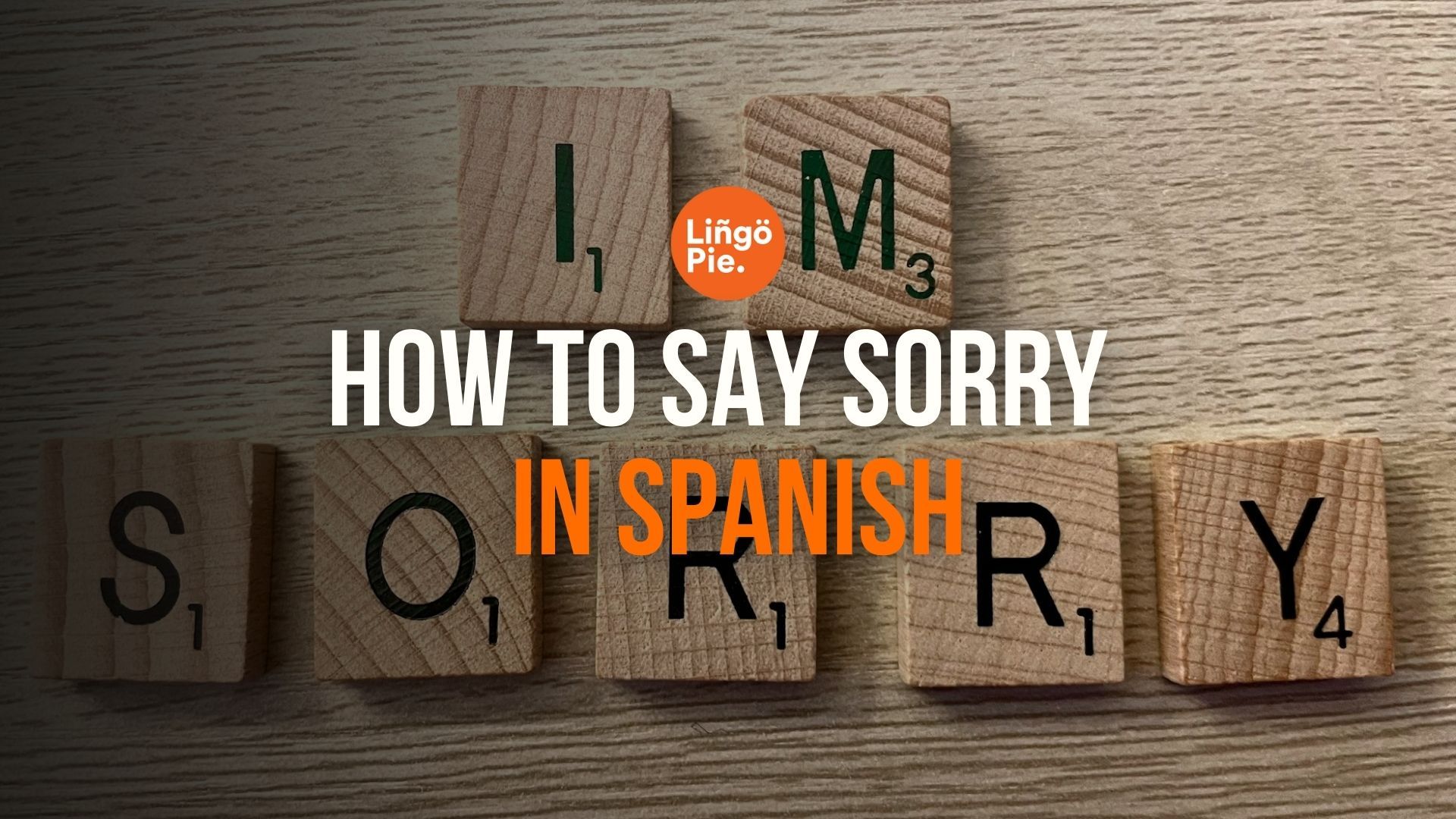Who hasn’t watched The Summer I Turned Pretty by Jeny Han and judged Belly’s choices? I know I did. Either if you are Team Jellyfish or Team Bonrad, Belly’s mistakes aren’t just in the romance department—they’re surprisingly common in the language learning process too.
As an experienced trilingual currently preparing for another language test, I meet learners from all over the world who are passionate but still stuck behind “rose-colored glasses” when it comes to their errors.
So instead of judging like I judged Belly, I’m going to share my best language learning tips to help you avoid becoming a “language learning Belly.” Let’s learn from Belly’s mistakes, not repeat them.
The 12 Best Movies on Amazon Prime Video to Learn Spanish [Must-Watch]
The 12 Best Movies on Amazon Prime Video to Learn Korean [Movie Tips]
The 8 Best Brazilian Movies on Amazon Prime Video to Learn Portuguese [Movie Tips]

The summer I didnt change study plans on and off

Yes, we’re talking about Belly not knowing which brother to choose—but let’s be honest, haven’t you ever felt the same way with your study methods? One day you want to try flashcards, the next day journaling, and the day after that, maybe a new app. The problem is, when we keep switching without really committing, we never give ourselves the chance to see what actually works.
Just like there’s no perfect recipe for love, there’s also no single perfect formula for learning a language. What matters is consistency. We need to stick with a plan long enough to measure whether it’s effective or not—only then can we truly know if it’s worth keeping or changing.
Building a routine is one of the most powerful tools for language learning. Think of it this way: remember in Inside Out when Riley’s brain was tossing out random facts about U.S. presidents but holding on tightly to that catchy jingle? Our brains actually work in a very similar way.

The brain is designed to be efficient—it doesn’t like wasting energy. That means it prefers to fall back on habits and familiar information rather than constantly creating new pathways, which is more demanding. When we encounter something only once, it usually goes into short-term memory, where it’s quickly discarded. But when the same information is used regularly, the brain realizes it’s worth keeping. Instead of “deleting” it every day, it saves it in long-term memory, making it easier to access in the future.
This principle applies not only to memory, but also to habits and executive functions. The more consistently you show your brain that a piece of information—or a routine—is important, the more naturally it becomes ingrained. In other words: repetition turns effort into ease, and daily practice transforms language learning into a natural part of your life.
The summer I didnt marry my language mistakes

Perhaps the most important thing I’ve learned in this whole language-learning process is: don’t marry your mistakes (sorry not sorry, Belly and Jellyfish Shippers). More than finding the “perfect” way to study, you need to keep up with your mistakes and fix them.
Studying for the TOPIK exam made this crystal clear. I had to check my errors and fix them ASAP. After doing a bunch of mock exams, I started comparing my answer sheets and realized there were certain types of questions I kept messing up more than others. That realization boosted my study efficiency by 100%. Suddenly, I wasn’t just randomly studying anything—I was focusing on the exact areas that needed improvement.
Even if there hadn’t been a specific pattern in my mistakes, that would’ve been a sign I needed to spend more time on vocabulary and grammar.
Here’s how I break it down:
- Mistakes in a specific type of question → lack of understanding of how to answer that question.
- Mistakes without a clear pattern → lack of vocabulary and grammar.
The point is: don’t ignore your mistakes. Use them as a guide.
The Summer I Solved My Problems Instead of Hoping They Would Change

In the show, when Belly finds out Jeremiah cheated (big yikes), her friend reminds her not to throw away four years of relationship. So she forgives him super quickly, without really solving the issue. Basically, she just hopes things will be fine from now on.
But here’s the thing: in both life and language learning, problems don’t get solved with wishful thinking. You’ve got to actually deal with them.
When I first started studying for TOPIK II, I stressed myself out trying to memorize all the grammar and vocabulary perfectly. Honestly, it just wasted my time. Don’t get me wrong—you need both to score well. But it all goes in vain if you’re not actually practicing solving the questions.
One of my biggest mistakes in the beginning was spending way more than 20% of my time on vocabulary instead of solving past papers. The truth is, studies show that the most effective way to learn is by teaching someone else or actively solving problems, while methods like simple reading or memorization have a much lower efficiency rate. As much as studying vocabulary for a language exam is important, it’s by repeatedly doing the test that you start to notice recurring themes and the exact words you actually need to memorize.
So here’s what I figured out:
- If you’re studying for a proficiency exam like TOPIK, spend 70–80% of your time solving past papers, and only 20–30% on vocab and grammar review.
- If you’re a casual learner, practice the skill you want to improve. Want better speaking? Actually speak—whether with people, tutors, or even AI. Want better reading? Read news or books. Writing? Keep a diary or write short commentaries.
Nothing beats experience and contextual practice. Just like Belly can’t fix her relationship by simply forgiving and hoping for the best, we can’t improve our language skills by wishing. We’ve got to actually work on them.
The Summer I Learned a Language with Lingopie
Just like in TSITP Belly’s summers are full of highs, lows, and lessons, my summer has been full of language “aha” moments—thanks to Lingopie.
But I don’t waste time just bingeing shows anymore—Lingopie makes every minute count. The Grammar Index & AI Coach helps me finally get tricky Korean sentences and fix my mistakes in real time. Video-based flashcards turn every word I click on into something I actually remember, linked to the scene where I learned it. Spaced repetition keeps me from forgetting anything, and adjustable playback speed means I can slow down the confusing parts or speed up when I’m ready.
Language learning can be hard, but it doesn't mean it has to be boring.
Final Thoughts: Don’t Be a Language Learning Belly
At the end of the day, Belly’s story might be about love triangles and teenage choices, but it also reminds us of something deeper: mistakes, routines, and problems don’t fix themselves. In language learning, just like in life, consistency and action matter more than wishful thinking.
If you keep switching study methods without committing, or if you ignore your mistakes instead of learning from them, you’ll stay stuck in the same cycle. But if you build a routine, analyze your errors, and focus on practice over perfection, your progress will be inevitable.
So don’t marry your mistakes, and don’t just hope your problems disappear—work on them. With daily effort and the right mindset, language learning stops being overwhelming and becomes second nature. And most importantly: don’t be a language learning Belly—be the version of yourself that sticks with the process and actually sees results.







![Is Lingopie Free? Plans, Pricing & Free Trial Guide [2026]](/blog/content/images/size/w300/2026/01/Is-Lingopie-Free.jpg)
![How To Gift Lingopie: One-Year vs Lifetime Subscription [GUIDE]](/blog/content/images/size/w300/2026/01/lingopie-gift-subscription.jpg)
![What is Lingopie? Complete Platform Guide [2026]](/blog/content/images/size/w300/2026/01/What-is-Lingopie.jpg)